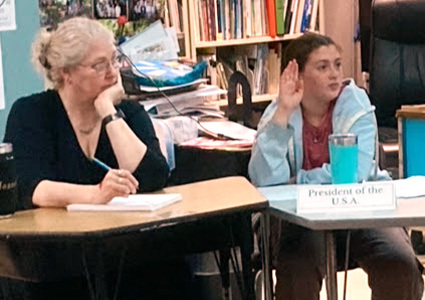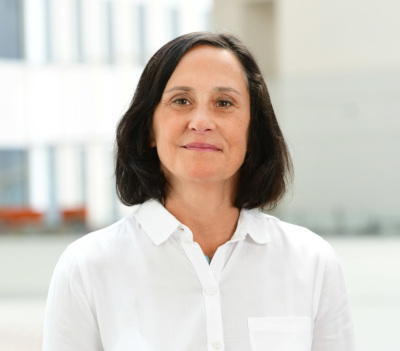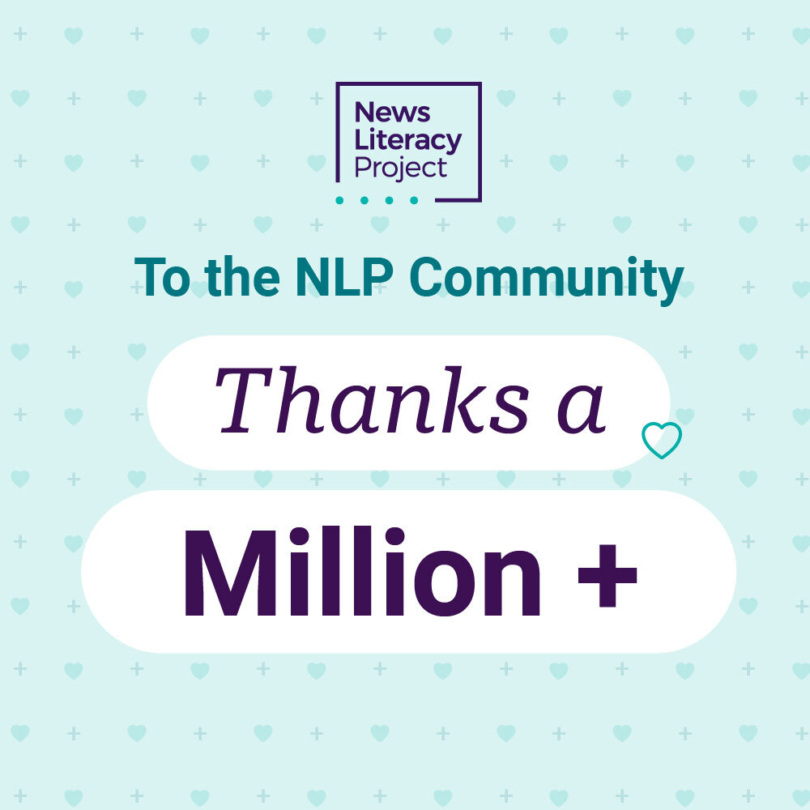The kids are alright: New Hampshire middle schoolers share how they use their news literacy skills


New Hampshire teacher Mary Ellen Wessels with middle school student Gwen Darah. Photo courtesy of Mary Ellen Wessels.
Tweens and teens often get a bad rap for mindlessly liking, posting and sharing content on social media without considering whether it’s a baseless claim, conspiracy theory or disinformation. That’s an unfair stereotype about an entire generation, but especially so for kids who use the News Literacy Project’s e-learning platform Checkology® to build their news literacy skills.
We recently talked to students from Gate City Charter School for the Arts in Merrimack, New Hampshire, where humanities and civics teacher Mary Ellen Wessels uses Checkology to weave news literacy into her classes.


Her classmate, Aubrei Pennington, agreed that her new skills come in handy when trying to determine if a source can be trusted. “Whenever I do need to look up something, I use what Checkology has taught me to see if it’s true and to find good sources.”




Students are also more aware of conspiracy theories circulating online and cautious about information generated by artificial intelligence. “You might think it’s a convincing story, but you still need the evidence to back it up,” Chloe noted.
Aleigha seconded that. “If I see something that doesn’t sound quite right, I’ll Google it.”
When it comes to AI, eighth grader Kaelynn Curran goes beyond brief summaries that AI-driven search engines produce. “The AI overview pulls stuff from different sites so you can see where it’s pulled it from, and you can review those sites and see if they’re factual.”
Learning news literacy skills also has benefited the students by improving their experiences on social media.
“I think that Checkology has not only helped me become more aware but also helps me enjoy the internet more because I don’t feel as scared or as worried when I’m online because I know these things,” Aleigha said. “Now, I know what to check, instead of being worried all the time that there’s fake news or stuff like that.”
Chloe agreed that social media can be a hurtful place, especially for girls, since the algorithms target them with influencer content and ads that appeal to their insecurities and make false promises. “You feel better knowing, ‘OK, this probably isn’t true.’ You can go on with your day without having that looming in the back of your mind,” she said.
Kaelynn’s news literacy know-how shows a healthy balance of skepticism without cynicism, and she offers advice we should all remember. “Check the facts. If it sounds bizarre, fact-check it. If it sounds real, fact-check it. No matter what, fact-check it. But also, don’t immediately be a hundred percent skeptical that it’s not real.”

